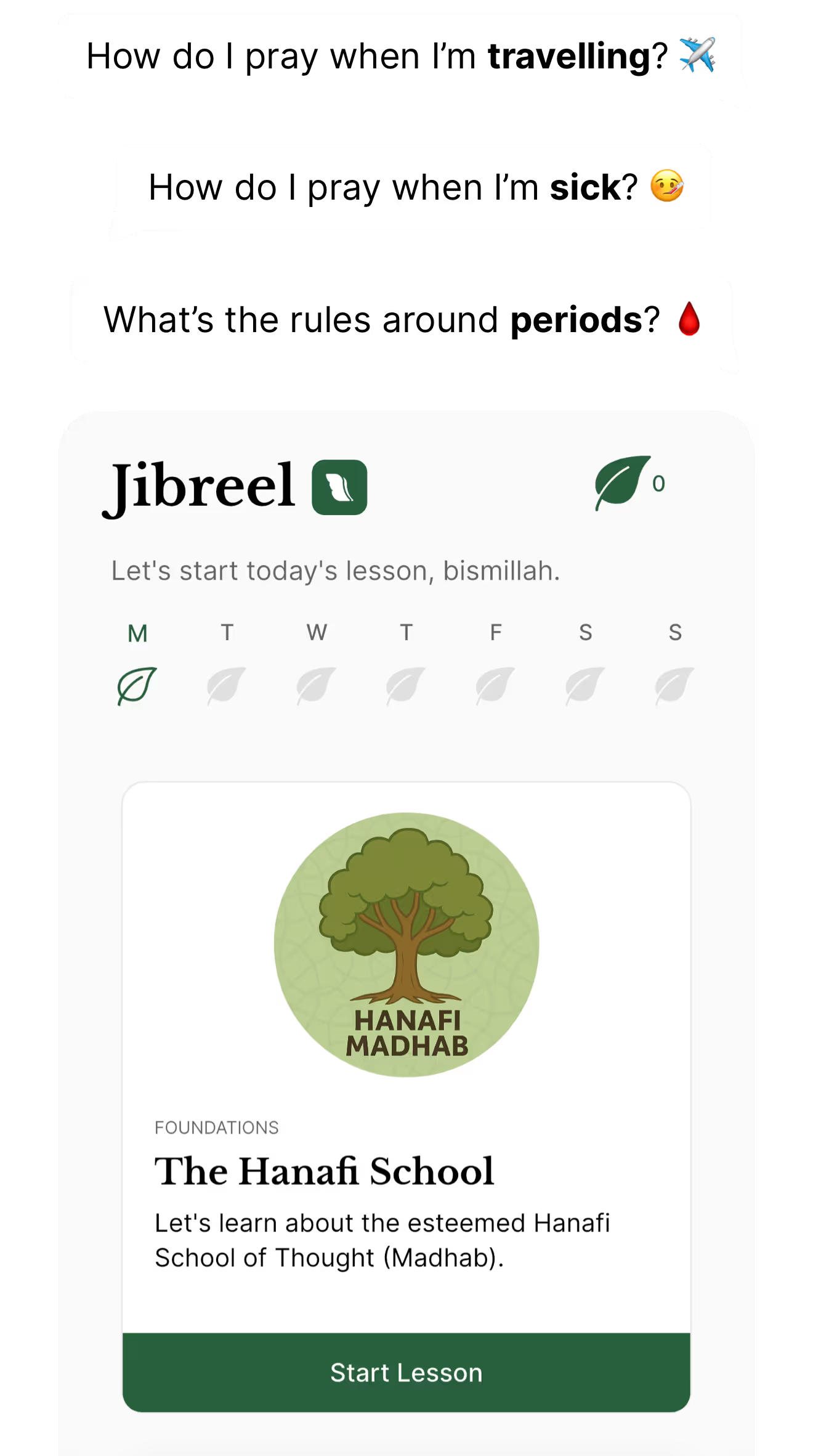Hanafi fiqh – the Islamic law according to the Hanafi school – has a rich library of manuals and guides. For lay Muslims looking to learn and practice their faith correctly, finding an accessible Hanafi fiqh book is essential.
In this article, we compare the best Hanafi fiqh books and resources available today. From classical texts to modern apps, these resources will help you understand daily Islamic rulings, purification, prayer, and more.
Top 7 Hanafi Fiqh Books and Resources for Lay Muslims
1. Ascent to Felicity (Maraqi ’l-Sa’adat) – Imam Shurunbulali
Ascent to Felicity is a translation of Maraqi ’l-Sa’adat, a renowned 17th-century Hanafi fiqh primer by Imam Abu’l Ikhlas Shurunbulali. This book is often recommended for systematic self-study because it is concise yet comprehensive.
It covers all five pillars of Islam (testimony of faith, prayer, fasting, zakat, hajj) in a step-by-step manner, and even includes chapters on topics like ritual slaughter, sacrifice, and hunting. Uniquely, it begins with a section on Islamic creed (aqidah), so the reader understands basic beliefs before diving into law. The English edition adds helpful footnotes and appendices – including supplications and etiquette – to further clarify the material.
Scholars have lauded Ascent to Felicity for balancing brevity with depth. For instance, Shaykh Faraz Rabbani noted it is “an excellent primer in Islamic beliefs and worship… more useful as a first complete text for those seeking understanding of the fiqh of worship than the more commonly-studied Nur al-Idah”. This indicates that while Nur al-Idah (another text by the same author, discussed next) is famous in traditional curricula, Ascent to Felicity might be more accessible to modern readers with its clear translation and added explanations. Imam Zaid Shakir also praised the translation’s lucidity and its benefit not just to Hanafis but to English-speaking Muslims in general.
In summary, if you’re looking for a single Hanafi fiqh book that covers worship thoroughly and is suitable for self-study, Ascent to Felicity is a top choice. It provides a solid grounding in both belief and practice, staying true to classical Hanafi rulings while being very readable in English.
3. Jibreel App - Learn Hanafi Fiqh in 5 Mins a Day (Based on Ascent to Felicity)
Not a book, but too important to ignore, the Jibreel App is an innovative resource for learning Hanafi fiqh. Branded as the “Duolingo for Islamic knowledge,” the Jibreel app uses interactive lessons and quizzes to teach obligatory Hanafi knowledge (fard ‘ayn) in just 5 minutes a day.
It’s tailored for busy Muslims who want to ensure they know how to pray, purify, and live according to Islam correctly. The app focuses on practical implementation through common real-life scenarios – for example, how to handle mistakes in prayer, the rules of wudu and ghusl, travel prayers, zakat calculations, and more – presenting them in a question-and-answer format with immediate feedback.
The target audience is lay Muslims, so the content is presented in plain language with engaging, gamified exercises. Jibreel covers all the critical Hanafi rulings on worship (prayer, fasting, purification, etc.), as well as everyday issues like halal food and modesty. Because it’s mobile and interactive, you can learn on the go and consistently reinforce your knowledge.
As the developers describe, “Jibreel is the ‘Duolingo’ for fard ayn (obligatory Islamic knowledge)”, making it easy for Muslims to learn essential Hanafi rulings in a fun way . For those who prefer an app over a textbook, or want to supplement their reading with practice, Jibreel is an excellent addition to your learning toolkit.
3. The Absolute Essentials of Islam– Faraz Rabbani (Hanafi Basics for Beginners)
For a concise introduction, The Absolute Essentials of Islam: Faith, Prayer & the Path of Salvation (Hanafi) is highly recommended. Shaykh Faraz Rabbani authored this short primer to outline “the absolute essentials” of Islamic knowledge – covering basic faith beliefs and the fundamentals of purification and prayer. Its purpose is to make one’s worship valid and proper in a short time , focusing on what every Muslim must know in the Hanafi school.
Despite being under 70 pages, this book has earned praise from scholars for its clarity and reliability. It is based on a classical text (Islah ‘Ilm al-Hal) but presented in simple English. As Mufti Muhammad ibn Adam al-Kawthari notes, it’s useful as both a starting point for beginners and a quick reference for others. If you’re just beginning your journey in Hanafi fiqh or need a refresher on the obligatory basics of worship, this affordable booklet is a “highly recommended” starting point.
4. Taleemul Haq (Teachings of Islam) – Compilation by Shabbir Ahmad Desai
If you want a slightly more detailed guide to the five pillars of Islam and other basics, Taleemul Haq is a popular choice. This book is an authentic compilation on the five fundamentals of Islam (faith, prayer, fasting, zakat, and hajj) according to the Hanafi school. Originally written for madrasa students, it systematically covers belief (iman) and the practical rules for worship acts (such as how to pray, perform wudu and ghusl, fast in Ramadan, etc.). It even includes topics like Islamic marriage (nikah), funeral rites, and basic etiquettes, making it a comprehensive manual of Islamic worship for everyday Muslims.
The language of Taleemul Haq is simple and straightforward, designed to be “easy and clear… in the light of Qur’an and Sunnah” . Special notes highlight the Hanafi viewpoints on various issues. Many Islamic schools and study circles for new Muslims use this book because it combines breadth and clarity. If you’re a layperson looking for one book that covers all the basics of practicing Islam in the Hanafi madhab, Taleemul Haq offers a reliable one-stop resource.
5. Nur al-Idah (Light of Clarification) – Imam Shurunbulali (with English Commentary)
Nur al-Idah wa Najat al-Arwah is a classical Hanafi manual focusing on purification and ritual worship, and it has been a staple text in many traditional learning circles. Written by Imam Shurunbulali (the same author as Ascent to Felicity), Nur al-Idah delves into the details of Taharah (cleanliness), Salah (prayer), Saum (fasting), Zakat, and Hajj.
A modern English edition titled The Light of Clarification and Salvation of the Souls (translated by Wesam Charkawi) makes this text available to English readers. This edition notes that Nur al-Idah “includes vast areas of jurisprudence, namely, the rulings pertaining to worship” and prepares the reader to deal with most matters of purification, prayer, funerals, charity, and pilgrimage . In fact, by covering everything from how to make wudu correctly to how to perform the Eid prayer, it leaves one well equipped in the core worship practices.
The English commentary on Nur al-Idah often incorporates insights from its authoritative commentary Maraqi al-Falah, as well as comparative notes from other schools for context . This makes it a useful reference book – the translator intended it “to be read independently”, with commentary filling in further explanations. For a lay Muslim, Nur al-Idah can serve as a go-to guide for day-to-day worship questions (e.g., how to handle doubts in prayer, menstrual regulations for women, etc.), thanks to its exhaustive treatment of these topics.
Do note that Nur al-Idah is a bit more technical than something like Taleemul Haq. It’s ideal if you want to study the Hanafi rulings in depth or follow along with a class (many Hanafi scholars have taught this text, and even online courses exist). With a bit of commitment, a determined reader can learn a great deal from this classical work and gain appreciation for why the Hanafi madhhab is so widely esteemed .
6. Mukhtasar al-Quduri – Imam al-Quduri (A Foundational Hanafi Reference)
No list of Hanafi fiqh books is complete without mentioning Al-Quduri’s Manual. Mukhtasar al-Quduri is a 10th-century Hanafi text that became one of the most celebrated and influential treatises of the school. In roughly 130 chapters, it succinctly covers all areas of Hanafi law – from purification and prayer to trade transactions, marriage, criminal law, and more. It’s often said that if something is not in Quduri, it’s not part of Hanafi fiqh! For scholars, this mukhtasar (abridgement) is an indispensable primer, and for lay readers it serves as a reliable point of reference.
Thanks to a quality English translation by Ta-Ha Publishers, Mukhtasar al-Quduri is now accessible to non-Arabic readers as A Manual of Islamic Law According to the Hanafi School (translated by Tahir Mahmood Kiani). This translation is notable because it’s the first ever complete English translation of Quduri’s work, spanning 760 pages. As mentioned in the introduction, Mukhtasar al-Quduri “is both the first source for scholars and a manual for the general reader”, anchoring its judgments in the Quran and hadith evidence inherited from the early imams . In other words, while it’s a scholarly text, its rulings are presented in a straightforward manner that a non-specialist can follow with some effort.
For a lay Muslim, Mukhtasar al-Quduri can function as a reference handbook – for example, if you want to look up the Hanafi ruling on a particular issue (be it how zakat is calculated on various assets, or the conditions of a valid marriage contract), Quduri likely has a brief entry on it. Because it’s succinct, sometimes the rulings appear as lists or terse statements. Many teachers advise using it alongside some explanation or notes. Nonetheless, having Al-Quduri on your shelf (or e-reader) means you have at your fingertips the same core text that Hanafi scholars have taught for a millennium. It’s a testament to the continuity of the Hanafi tradition and a worthwhile addition to the library of any serious student of fiqh.
7. Behishti Zewar (Heavenly Ornaments) – Mawlana Ashraf Ali Thanwi
Behishti Zewar is a unique entry on this list – it is part fiqh manual, part guide to practical life – originally written in Urdu for Muslim women in the early 20th century. Don’t let its origin fool you: this work, by the renowned scholar Ashraf Ali Thanwi, has benefited men and women alike and is available in English as “Heavenly Ornaments.” It’s often described as “an 8-volume handbook of fiqh for girls and women, describing the Five Pillars of Islam” and much more.
Traditionally, Bahishti Zewar was given to brides as a comprehensive guide to living a correct Islamic life – covering everything from how to perform prayers and fasting, to personal grooming, marital relations, raising children, and household management in an Islamic manner.
In terms of fiqh, Behishti Zewar adheres to the Hanafi rulings throughout, presenting them in a simplified form for easy understanding. It is arguably one of the most comprehensive Hanafi manuals available in English today, encompassing worship, social etiquettes, and even spiritual advice. The English translation consolidates the multiple parts into a single volume. Readers will find sections on purification, prayer, charity, hajj, along with sections on rights of husband and wife, recommended Islamic morals, and du’as (supplications). Because of its breadth, this book is extremely useful for households: families can refer to it for a wide range of day-to-day religious questions.
Keep in mind that Behishti Zewar was written in a specific cultural context (Muslim communities in South Asia), so some anecdotes or examples reflect that setting. Still, the core guidance is universal for Hanafis. If you prefer learning through a conversational tone rather than a dry legal text, you’ll appreciate that Behishti Zewar often addresses the reader directly and practically. It’s an ideal resource for someone who wants more than just ritual law – it provides a holistic Islamic lifestyle guide grounded in Hanafi fiqh and traditional wisdom.
Conclusion: Choosing the Right Hanafi Fiqh Resource
When it comes to learning Hanafi fiqh as a lay Muslim, you have multiple pathways. If you prefer a structured, classical approach, a translated manual like Mukhtasar al-Quduri or Nur al-Idah connects you directly with the traditional curriculum of the madhhab. For a simplified and modern approach, primers like The Absolute Essentials of Islam or Taleemul Haq boil things down to what you need to fulfill your duties correctly, without overwhelming detail. Those who want a bit of both – classical content presented accessibly – will find Ascent to Felicity an excellent middle ground, as it bridges sound scholarship with user-friendly explanation.
Meanwhile, don’t overlook digital resources like the Jibreel app. Such tools leverage modern technology to reinforce learning through quizzes and interactive scenarios, catering especially to younger learners or anyone who finds apps more engaging than books. In fact, using a combination of resources can be highly effective: for example, you might read about the rules of wudu in a book, and then use the app’s quiz to test your understanding. Each resource has its strengths – some are great for reference, others for step-by-step learning, and others for practical Q&A.
Finally, remember that studying fiqh is not just about reading – it’s about applying knowledge. Whichever book or resource you start with, make sure to implement what you learn in your daily worship. And whenever you’re confused or need clarification, don’t hesitate to ask a knowledgeable teacher or scholar. These books and tools are there to guide you, but the insight of a teacher can resolve ambiguities (just as the classical texts often assumed a teacher’s guidance ). With the right resource in hand and sincere effort, you’ll gain a solid understanding of Hanafi fiqh that will help you worship Allah with confidence and correctness. Happy learning!









